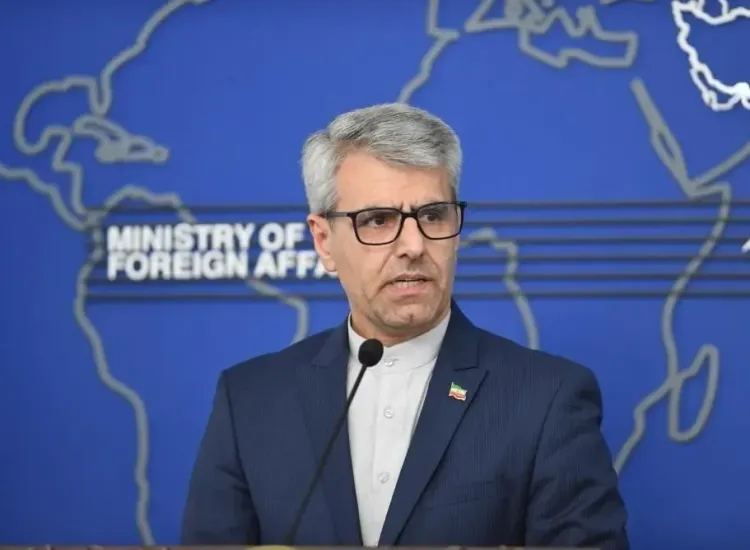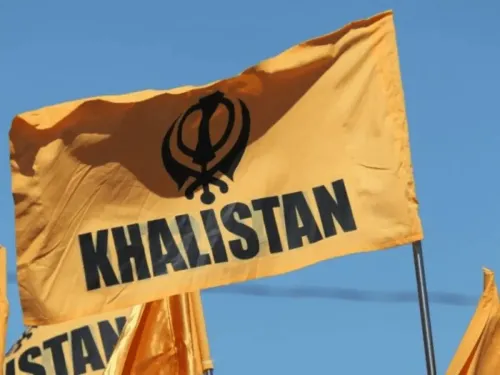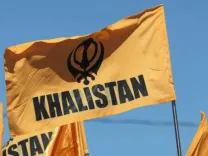Iran Denounces Fatal US Airstrikes Targeting Yemen's Fuel Port

Synopsis
Key Takeaways
- Iran strongly condemns the US airstrikes in Yemen.
- At least 80 individuals were killed in the attacks.
- The US Central Command aimed to diminish Houthi fuel supplies.
- The Houthis claim to have transformed the port into a weapon smuggling center.
- Retaliation against the US strikes is expected from the Houthis.
Tehran, April 19 (NationPress) Iranian Foreign Ministry spokesperson Esmaeil Baghaei has vocally criticized the US fatal airstrikes on the Yemeni fuel port of Ras Isa.
His comments came following the US airstrikes on the Yemeni port on Thursday, resulting in the deaths of at least 80 individuals.
Baghaei characterized the attacks as "a blatant example of the crime of aggression and a gross violation of the core principles and regulations of the United Nations Charter and international law."
He emphasized that the US "aggressions" against Yemen were consistent with its "unwavering support for Israel's occupation and genocide" in the occupied Palestinian territories, which would exacerbate insecurity in the area and jeopardize both international peace and security.
The strikes commenced late Thursday night. As reported by Houthi-operated al-Masirah TV, the casualties included port workers who were caught in the violent US airstrikes while on duty, according to the Xinhua news agency.
The US Central Command confirmed in a statement that it targeted and destroyed Ras Isa on Thursday to "eliminate this source of fuel for" and "diminish the economic strength" of the Houthis.
The port, situated northwest of the Yemeni Red Sea city of Hodeidah, has served as a crucial lifeline for fuel imports into areas controlled by the Houthi group. The group has dominated extensive regions of northern Yemen since initiating a civil war against the government in late 2014.
Previously, US Central Command (USCENTCOM) affirmed in a statement that it targeted and destroyed Ras Isa on Thursday, "to eliminate this source of fuel for" and "weaken the economic power" of the Houthis.
"The Houthis have persistently gained economic and military advantages from nations and companies supplying material support to a designated foreign terrorist organization," USCENTCOM stated on the social media platform X. The United States reclassified the Houthi group as a terrorist organization after Donald Trump took office in January.
USCENTCOM accused the Houthis of utilizing fuel to sustain their military operations, as a means of control, and to profit from the embezzlement of import revenues.
Following the intensive airstrikes, Yemeni Information Minister Moammar al-Eryani blamed the targeting of the fuel port on the Houthis, alleging that the militia had transformed the port "from an economic facility serving Yemenis into a hub for smuggling weapons and fuel."
Meanwhile, Minister of Oil and Minerals Saeed al-Shamasi confirmed the preparedness of government-controlled ports in Aden, Nishtun, Mukalla, and Mocha to receive fuel and food shipments sufficient to satisfy market demands across all regions of Yemen.
In retaliation, the Houthis condemned the strikes as "a complete war crime," rejecting both the US and the Yemeni government's allegations, asserting that "the port is a civilian, not a military facility."
In a statement released on Friday, the Houthis claimed the US attacks were intended to bolster Israel in its offenses against the Palestinian populace, pledging to persist in their "support operations" for Palestinians. The group also asserted that it has successfully obstructed all "Israeli navigation in the Red Sea."
They assured citizens in northern Yemen that "the oil supply is stable," while warning that "the US crime will not go unpunished."
On the same day, the Israeli military reported intercepting a missile launched from Yemen in the morning, which is believed to have been fired by the Houthis in retaliation for the US airstrikes.
In mid-March, Trump ordered "decisive and powerful military action" against the Houthis after they announced plans to resume attacks on Israeli targets, citing Israel's blockade of humanitarian aid to Gaza as justification.









